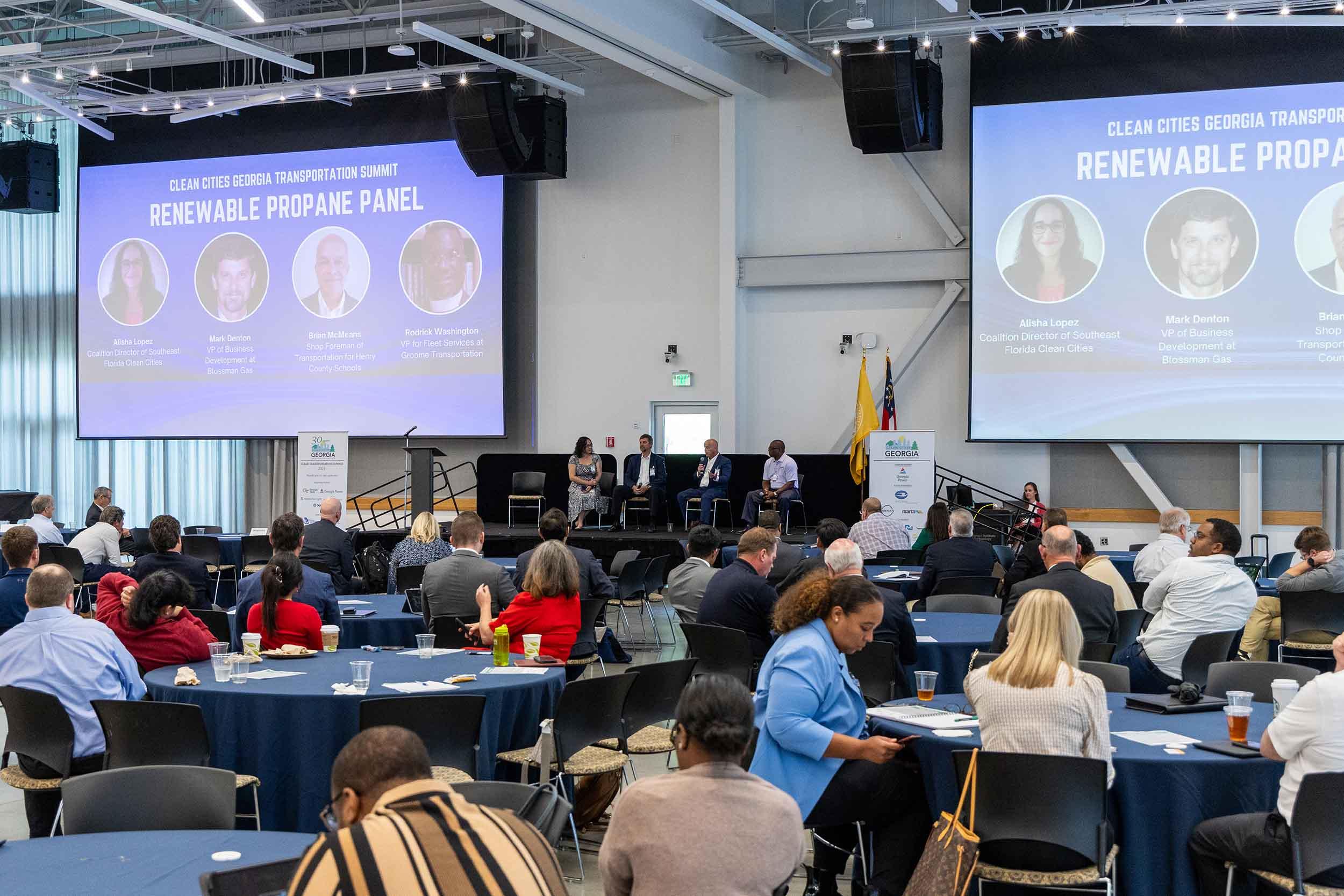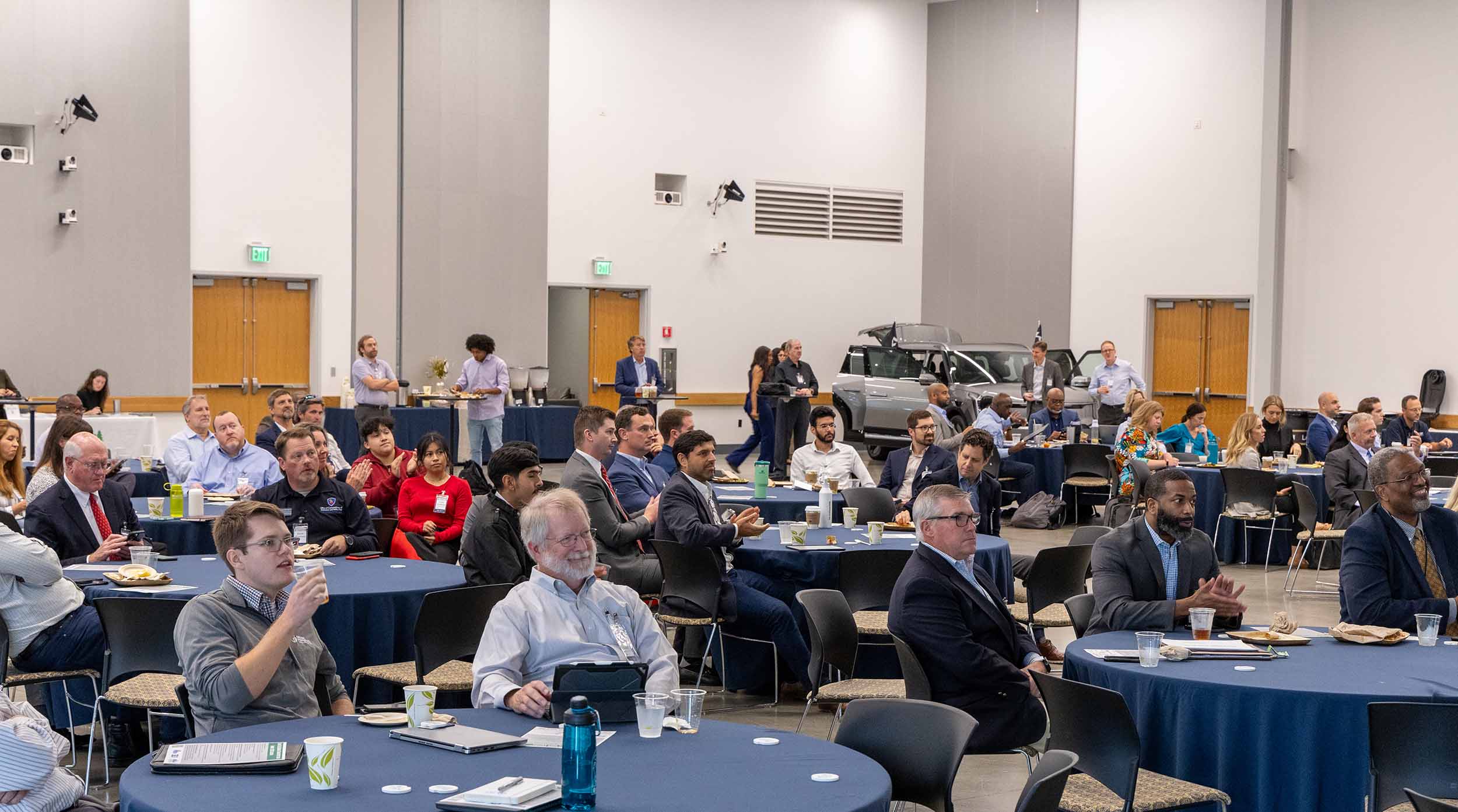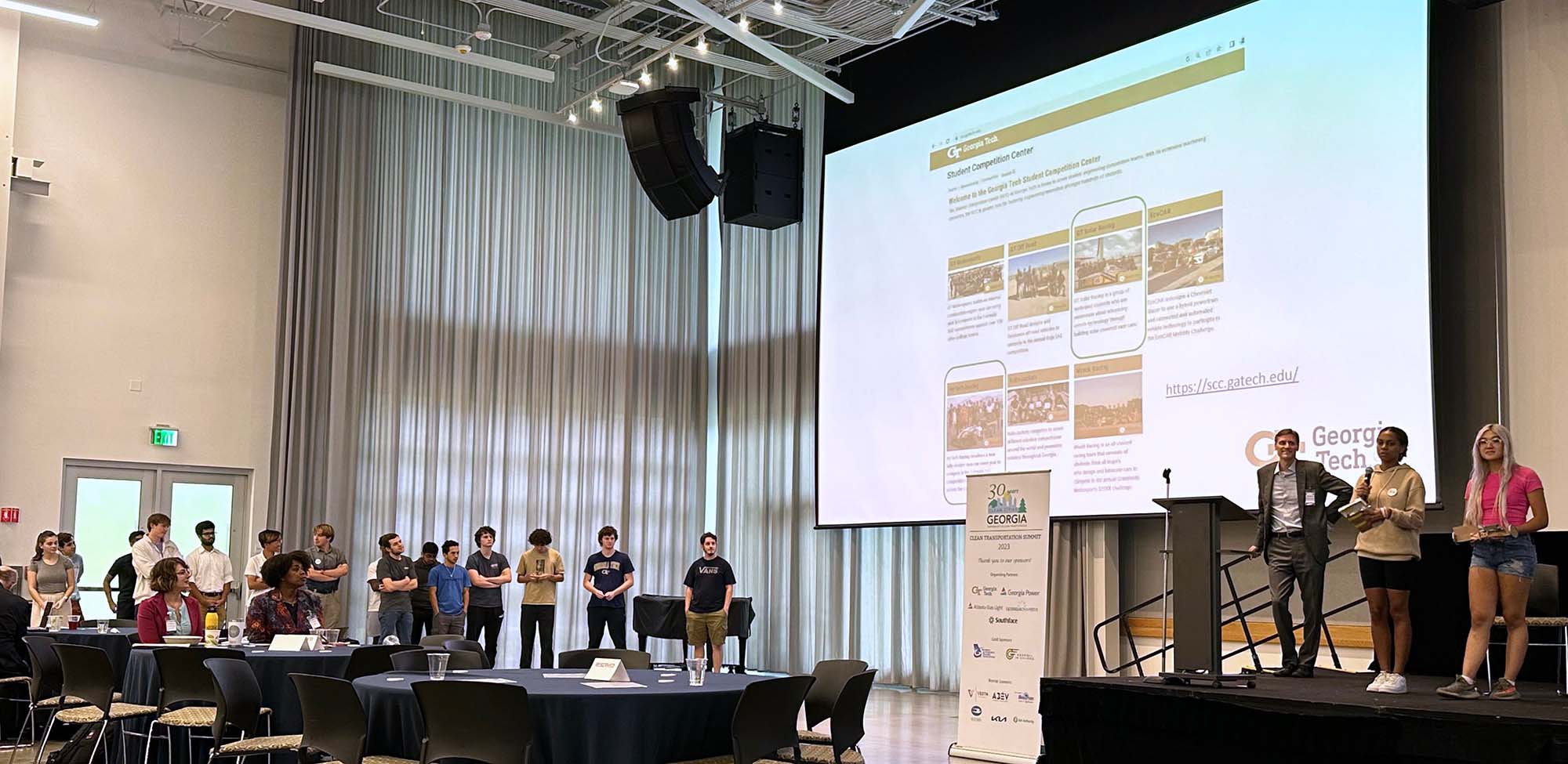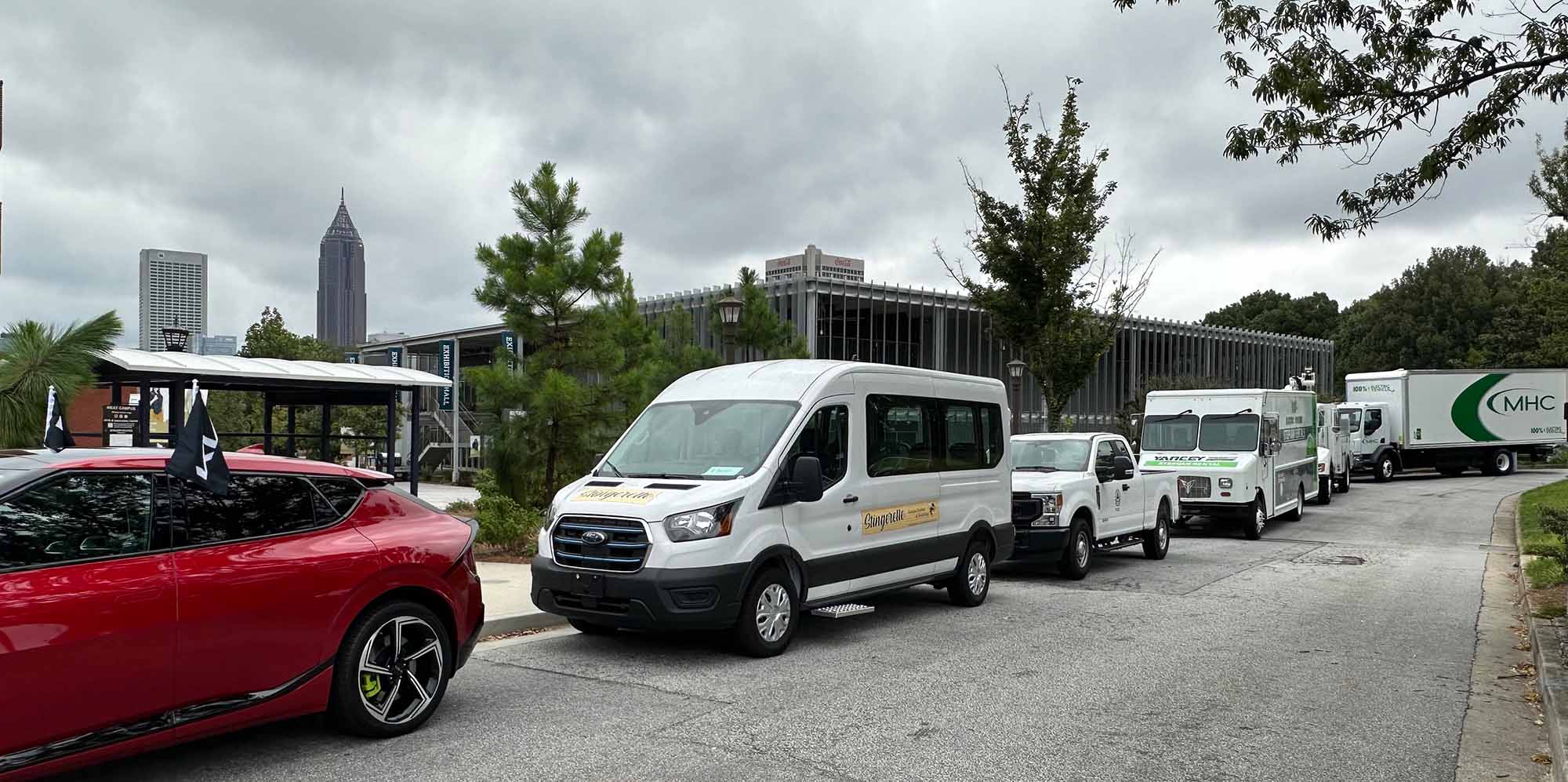Alternate Fuel Success Stories Highlighted at Clean Cities Georgia Transportation Summit
Oct 18, 2023 — Atlanta, GA

Panel discussion at the 2023 Clean Cities Georgia Transportation Summit
The Georgia Tech Energy, Policy, and Innovation Center, in partnership with Clean Cities Georgia, Atlanta Gas Light, Georgia Chamber of Commerce, Georgia Power, and Southface Institute, hosted the 2023 Clean Cities Georgia Transportation Summit in September. The event highlighted the successes and benefits of all forms of clean transportation in Georgia and across the nation and provided an opportunity for more than 100 attendees to network and build public-private partnerships. The summit also honored the 30th anniversary of the Department of Energy’s (DOE) National Clean Cities Network, and Clean Cities Georgia, which was the first coalition founded in 1993.
Tim Lieuwen, executive director of the Georgia Tech Strategic Energy Institute, Ian Skelton, natural gas vehicles director of Atlanta Gas Light, and Frank Norris, executive director of Clean Cities Georgia, provided the welcome and opening remarks followed by a panel of executives from UPS, Chevron, and the DeKalb County Fleet Management who discussed the benefits of adopting clean fuels for businesses.
“I am excited that Georgia Tech continues to play an integral role in convening industry and community in the local region and helping to build strong relationships that will positively impact the regional and national energy landscape,” said Lieuwen, Regents’ Professor and David S. Lewis Jr. Chair in the Daniel Guggenheim School of Aerospace Engineering. “Events like this tap into the regional expertise within academia, businesses, nongovernmental organizations, and research facilities, which speaks to the vision of EPICenter.”
The daylong summit consisted of panels discussing use cases for alternate fuels available in the market: natural gas/renewable natural gas, electric vehicle (EV) applications, propane and renewable propane, biofuels and sustainable aviation fuels, and current and future hydrogen applications. Panelists shared processes and considerations that led to the successful implementation of alternate fuels within their organization, including choosing locations, procurement, state and regional policies, incentives, effects on the community, improvements in current processes, reduced carbon footprint, and scalability while shifting from fossil to alternate fuels.
Panelists from Cobb, DeKalb, and Henry counties shared successful implementations of alternate fuel vehicles in their respective localities that included propane, renewable natural gas and EVs and showcased some of their alternate fuel vehicles during the summit. Workforce development and infrastructure concerns included training new electricians, aging line men in the region, and future proofing charging stations. Transformer supply chain issues were also brought to the forefront during discussions throughout the day.
Representatives from the Office of Energy Efficiency and Renewable Energy and the U.S. Environmental Protection Agency spoke to the audience on how to work with their respective agencies to get federal funding in this area. The event ended with a 30-year review of Clean Cities Georgia, a nonprofit that started as the first initiative of the DOE to focus on strategies to reduce petroleum consumption in transportation. There are now nearly 100 coalitions across the country.
The event was part of National Drive Electric Week, which took place during the last week of September. Presentations and other details from the summit can be accessed through the 2023 Clean Cities Georgia summit webpage.

Attendees at the 2023 Clean Cities Ga Transportation Summit

Georgia Tech Students present their work at the 2023 Clean Cities Georgia Transportation Summit

Alternate Fuel Vehicle Lineup at the 2023 Clean Cities Georgia Transportation Summit

Dekalb County RNG Vehicle at the 2023 Clean Cities Georgia Transportation Summit
Priya Devarajan || Research Communications Program Manager




